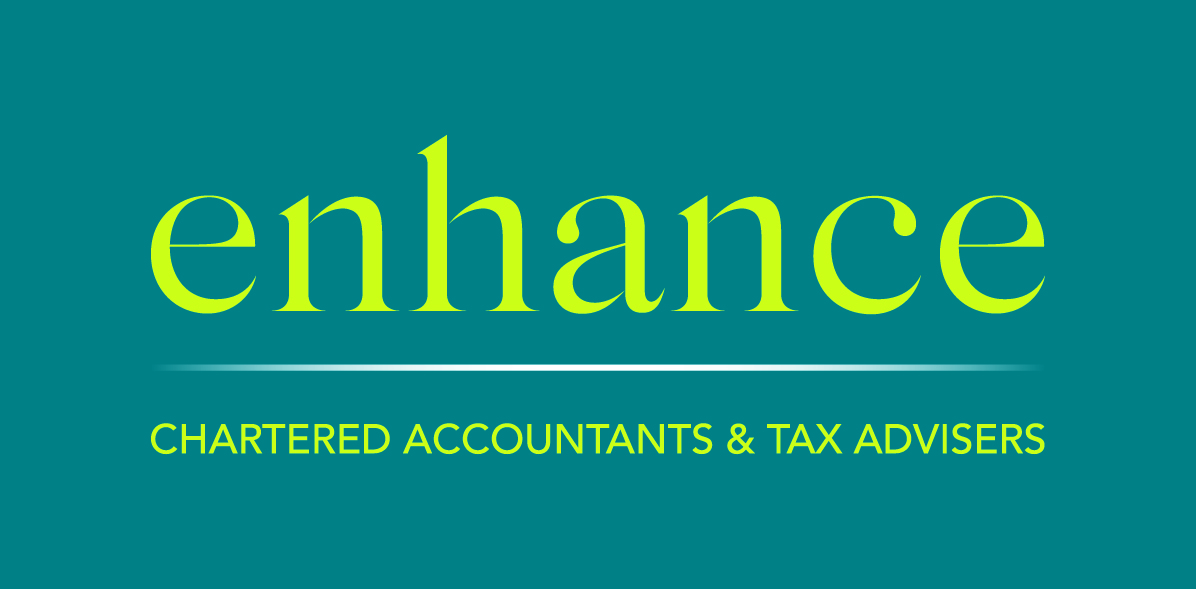ONDATO: Ensuring understanding and compliance with the sanctions on Russia
ONDATO provides a complete compliance management suite in regard to KYC procedures. Each month we will illustrate via a case study how a company has used the ONDATO offering in their business. This month we examine the sanctions on Russia and what you can do to ensure you are in compliance with any regulations that fall on you or your company.
Script of Interview
Interviewee Mr. Povilas Steikunas (PS)
Position Head of Partnerships
Company name ONDATO
Company website: https://ondato.com/
Case study: Sanction on Russia
Reference websites: Several included in the script
Interviewer John D. Evans, CFA (JE)
Interview conducted on 8 April 2022
JE Okay, good day to the viewers and this new episode of SEIML Ventures. Today we’re talking with Mr. Povilas Steikunas who’s Head of Partnerships at ONDATO. Just a bit of background on ONDATO. It’s a company that provides a complete Compliance Management Suite in regard to know-your-client procedures. Each month, we will illustrate through case study or something similar how a company has used or can use the ONDATO offering in their business. This month, something a little bit different as we examine the sanctions on Russia, and what you can do to ensure you are in compliance with any regulations that fall on you or your company.
Introduction
JE Just as a bit of background to the topic, Russia invaded the Ukraine on 24th of February 2022. And many countries around the world responded by putting various sanctions, economic and otherwise on Russia. There were, however, other sanctions in place since November 2021 in response other violations of Ukraine territory by Russia. We are not going to debate the politics surrounding the invasion of Ukraine. Rather, we want to provide the viewer with a factual guide on the sanctions so that they can determine what sanctions either they or their company must comply with. This is a fast moving and changing situation. But understanding the sanctions and their applications is something we must all do, and very quickly. So, in that regard, welcome. Povilas. Nice to have you back to discuss matters again.
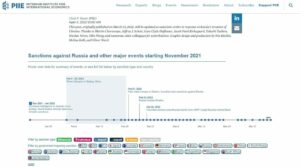
Refer: https://www.piie.com/blogs/realtime-economic-issues-watch/russias-war-ukraine-sanctions-timeline
PS Hey, John, nice to be here again.
What or who are the sanctions applied to?
JE 02:11
Okay, so let’s kick off and for the benefit of the viewers start off by telling the viewers what and who are the sanctions being applied to.
PS 02:23
Right, so sanctions fall into a number of categories, there could be economic sanctions, diplomatic sanctions, military sanctions, sports sanctions, sanctions on individuals. Today, the United Nations Security Council consolidated sanctions list includes all individuals and entities subject to UN Security Council sanctions measures. Many international bodies such as EU sanctions, H.M. Treasury, OFAC in the United States SECO in Switzerland, et cetera, or individual nations also follow the UN Security Council’s regimes. Some may also enact their own sanctions list related to specific regional threats or other national security considerations.
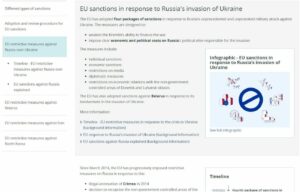
Refer: https://www.consilium.europa.eu/en/policies/sanctions/different-types/
PS In the recent context, the most relevant classification perhaps, would be individual sanctions, sanctions on entities and sectoral sanctions. Individuals or entities engaging in illegal activities or falling under the specific sanction sector can end up on the sanctions list or watch lists. Such entities you know, include money laundering, terrorism and terrorist financing, drug trafficking, human rights violations, arms proliferation, violation of international treaties. And again, as mentioned, if they follow under this sanction sector, they may end up in the sanction list.
Who must abide by the sanctions?
JE Okay, so that is an overview of who the sanctions apply to. Now, we must understand who or what must comply with these sanctions, the other side of the book.
PS Oh, good question. Generally, every economic entity, financial institution or organization. You know, in today’s global landscape organizations must navigate through this complex network of sanctions and is not just banks and financial institutions, you know, that face this challenge. Companies spanning a range of industries have been the target of these enforcement actions. Failing to comply with these sanction laws can open up your business to significant legal, financial and reputational ramifications. For instance, in Lithuania, their financial crime investigation service, also known as FNNT, which monitors the implementation of EU financial sanctions, warns that enforcement of EU sanctions in Lithuania is mandatory for every economic entity, financial institution or organization. So, violation, noncompliance of international sanctions, may simply result in fines. And business must already if they haven’t done this already carry out a business risk assessment in the context of sanctions. So, businesses need to rate the geographical risk, you know, in which countries or territories they operate, the product risk, you know, what are the potential risks of sanctions and restrictions, as well as customer and partners, you know, whom they’re dealing with? What is the risk of sanctions for those existing customers, and business partners?
Refer: https://www.fntt.lt/lt/naujienos/fntt-informuoja-es-sankciju-vykdymas-privalomas-visiems/4149
Multiple lists and sources of sanctions
JE Okay, now you’ve given a very specific example. But my understanding is that there’s a great many various entities and governments putting in place sanctions, and that they may vary from country to country. So how can one find a comprehensive source and list for all sanctions, that allows someone to determine whether a person or company you know what they actually need to comply with? Not just in one country?
PS Yeah, right. So, I previously mentioned international bodies such as UN Security Council, EU, H.M. Treasury, OFAC, SECO, and many others, like individual nations have their official publicly listed sanction lists which could be easily found on the internet. The problem is information quantity, as well as constant updates.
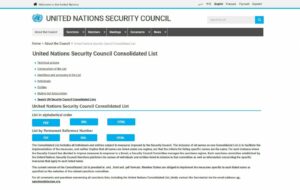
Refer: https://www.un.org/securitycouncil/content/un-sc-consolidated-list
PS When you’re dealing with a mass of information and you need to aggregate and you need to follow because you know, updates are constant, that becomes a problem. To make sure sanctions are not circumvented, we must look broadly and carefully whenever a sanctioned individual indirectly owns, controls or benefits from the asset by being the party in any form to the trust or any other legal vehicle. So, it’s a customer due diligence part and we must investigate every single time whenever for instance, indirect ownership or control was a scheme to circumvent the sanction and if not, the sanctioned individual must be considered the owner of the asset. Another thing is the lack of unified block-wide beneficial ownership framework. And then in a situation with information sharing between member states, risks hampering enforcement of sanctions against the sanction ones who often you know, exploit the regulatory gaps to hide ownership of yachts, luxury properties and master business interest under the layers of anonymous structures. In some countries, like in Lithuania, recent events have prompted a dramatic increase in information sharing in general on the on the designated individuals and entities. So, between lenders, the country’s financial intelligence units, other public bodies and also service providers like ONDATO.
ONDATO solutions with respect to identifying institutions and/or companies and/or individuals.
JE Okay, now, just listening to this, it sounds like a real challenge. Given the amount of information, the diversity of sources to try to monitor, particularly for small or medium sized enterprises. So, explain to the viewer how your firm ONDATO can help individuals and businesses manage this very complicated process.
PS Right. So as a service provider ONDATO helps clients aggregate all the information in one place, and supports customer due diligence process, we are trying to be a right hand for any compliance, AML person, and so ONDATO sanctions database contains global, global 500-plus list database from the official sources and make sure lists are up to date, because, again, they’re constantly being updated. So, any individual or entity could be found by manual or automated means just entering person’s full name, or company’s name, depending on what we are looking for.
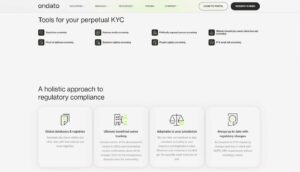
Refer: https://ondato.com/due-diligence/
PS And this aggregated information in one place not only allows to find the sanction the individual or entity, but also provides the full context, you know why it is on the sanction list and if it’s really the one that that is being, you know, looked for, because, again, there are those false positives, right? Let’s say for instance, the same surname, and so on. So ONDATO system with all of this customer due diligence support, you know, by its tool, allows, allows you to do that search plus, helps any compliance person by allowing, for instance, to export all the data to your system, or simply a simple PDF, let’s say for reporting purposes.
JE 11:57
Go ahead.
Povilas Steikunas 11:58
So, you know, with the overall, this all-sanction monitoring tool, it’s important you know, because not only through the onboarding process person needs to be screened, but also on the periodic basis how it’s happened and that’s what ONDATO system allows.
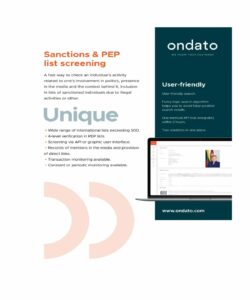
JE 12:21
Okay, and we’ll put in there will be numerous graphics shown during this video, but one of them will be the source for the slide the ondato.com/due-diligence and your new brochure about PEP, which stands for politically exposed person, list screening to help people manage this process. So, thanks very much for this introduction, Povilas. You know, I’m sure this is going to be an ongoing and ever-changing situation. So, we look forward to getting some updates in the future as things progress, but thanks for providing this sort of framework and overview here today.
Povilas Steikunas 13:06
It was a pleasure being here. Thank you.
End.








